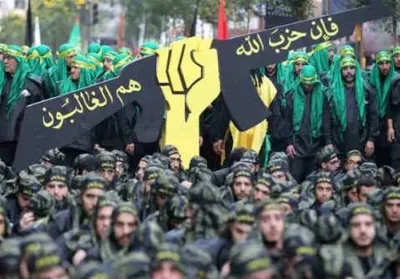Since Oct. 7, when Hamas terrorists crossed the border into Israel and murdered over 1,400 men, women, and children and took hostage over 200 people including foreigners, the Israeli military beefed up its forces on its northern border with Lebanon where Hezbollah is threatening war.
While Hezbollah has been periodically firing anti-tank missiles and rockets into Israel, it has yet to enter an all-out conflict with the Jewish state. Whether or not it had coordinated with Hamas over the scale and timing of the recent attack is under debate, but what is clear is that this could become Hezbollah’s moment in the spotlight.
For years, Hezbollah’s leader Hassan Nasrallah has threatened to go to war with Israel. Not long ago, Israeli forces discovered several tunnels Hezbollah had dug under the border fence, leading into Israeli territory. Israel quickly filled them with cement, but not before showing them to the international press and delegations to demonstrate how Hezbollah planned to infiltrate Israeli communities.
Now, after Israel evacuated 40 communities near the Lebanese border, forcing tens of thousands of Israelis to evacuate and move south, that threat seems about to materialize.
Judging by Israel’s obliteration of several large swaths of Gaza’s neighborhoods, it is not difficult to envision what level of damage Israel will inflict on some parts of Lebanon if Hezbollah does decide to get more deeply involved in the conflict.
That decision, however, lies with Iran
With the Ayatollah’s safely ensconced in Tehran, they can make their decision from afar, manipulating their proxies in Lebanon, Syria, Gaza and Yemen with ease.
Commentators have been debating how much Iran was involved in Hamas’s massacre on Oct 7., but few argue that Iran was at least involved in funding and overarching decision making. What is clear is that Iran is responsible for the actions taken by the Houthi in Yemen and Hezbollah in Lebanon. It is easy to see that any Hezbollah action is being called by the Iranian regime.
Should Iran decide that Hezbollah should attack Israel in full force, Israel will need to decide if it is only going after Hezbollah in Lebanon or if it will strike Iranian leaders somehow.
It is almost certain, given certain comments by senior Israeli officials, that Israel will attempt to strike all of Hamas’s leaders – even those living a comfortable luxury life in Qatar.
If Hezbollah attacks Israel, Nasrallah can be certain Israel’s special forces will try to hunt him down and will likely not stop until they do.
Given such high stakes in the Middle East, with two of America’s aircraft carriers in the eastern Mediterranean, the USS Gerald R. Ford and the Dwight D. Eisenhower Carrier Strike Group, it is likely Iran is being forced to rethink what it might have originally thought was an easy attack on Israel.
Israel’s actions moving forward will ultimately be determined by the Iranians. If Iran decides it wants war, it will force Israel into war. If Iran decides it does not want war, it will save Israel from having to defend itself on four fronts.
For Israel, the fact that Iran has yet to attack Israel on all fronts could be seen as a blessing as it could concentrate mainly on fighting Hamas in Gaza as it attempts to destroy the terror group and rescue the hostages.
The next few days will prove decisive. In the meanwhile, innocent people are dying by the thousands. Let’s hope Iran does not give Hezbollah the green light.
